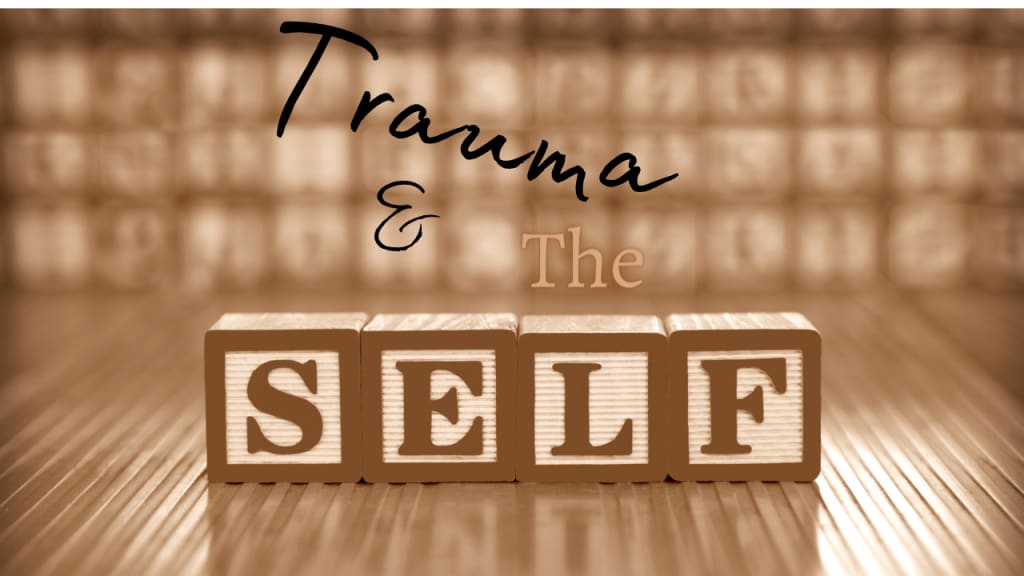Trauma and the Self
Understanding Brings Healing

Trauma and the Self
Continuity is deeply important to the experience of being human. It is how we remember who our friends are, what threats exist, what dreams and goals keep us moving in a world filled with obstacles and pain. The mind’s ability to frame information is what makes a movie a movie and not a scrapbook of still images. Human perception of time may not be much different, but it’s hard to say. Continuity isn’t just for humans. Elephants, cats, even the planet is where it is today because of where it was in the aggregate of the moments before. A river flows through its bed, but it is not the same water that it was yesterday, or two minutes ago.
We know ourselves like we know the nearest river or the seemingly immortal blue sky. Here in Seattle, in September of 2020, the sky is not the same today. It is covered in a thick blanket of grey smoke that cares nothing for human concerns. When something familiar becomes unfamiliar, it can be very jarring. The most familiar experience for most human beings is the experience of self. There would be little pondering of the sky without a sense of self to do it with.
When this author first watched Professor Wright’s lectures in 2017, the first consequence was trying to explain the sense of revelation to a dear friend. We shall leave that as it did not go well. A sky full of smoke makes more sense than that the sense of continuity of self is an illusion. It didn’t go any better with the next friend either. For this author, it was the start of making the world actually make sense. For the first time, it was an understanding of where the smoke had come from, for this author.
There are two other very important concepts that braid into an understanding of why the self isn’t real and why that’s important. The first is the modularity of the human mind. The eyes of most human beings point outwards and the world outside gets measurements, but the world inside gets mythology. Long ago, it was widely believed that humans only use ten percent of our brains and in a world created by some mythological being, with some great plan for somewhen in the future, that seems to make enough sense to be okay. There is much more evidence to consider that the mind is modular, meaning that there’s a part for mate selection, threat detection and so forth (Kurzweil, 2014; Stepnisky, 1995). Further, Roger Sperry proved that when the Corpus Callosum is severed the two hemispheres function as more independent brains (Lienhard, 2018).
With the concept of the modular mind, it is easy to postulate that there is a storyteller module that constructs continuity (Kurzweil, 2014; Stepnisky, 1995). Another example can be seen in patients with dissociative identity disorder, where childhood trauma has disrupted the construction of a consistent sense of self. Extreme trauma in early childhood, especially if it is prolonged, disrupts normal development (Wang, 2018). In the personal experience of this author, under the cloud of internal mythology this can lead to the understanding that there are multiple selves within. Similar to patients with physically split brains, this can lead to multiple sections of the brain attempting tasks at the same time. Like all things, this can be an advantage or a disadvantage, depending on the environment.
Reading the Second Sermon of the Buddha, when he is recorded as having said:
“"O monks, the body cannot be considered as soul because it is liable to destruction sensation, perception, predisposition, and consciousness also cannot be considered as soul, because even the consciousness is subject to destruction. Is not the form transitory? Is it permanent? Are not the sensation, perception, inclination, and consciousness transitory? Are they permanent? And that which is transitory, is it evil or good? And that which is transitory, evil, and liable to change, can it be ever considered as ' this is mine' or as "this is I am " " or as " this is my eternal soul "?” (V, n.d.)
Suddenly this author’s personal experience made so much more sense. The parts of mind speaking to each other within this author’s mind were there, but where not the totality of self, because self itself is an illusion. There is a river and there is a sky, but they are constantly becoming and the human memory of either is nothing more than a snapshot of what was, not what is.
Indeed, as the Buddha asks, “Is not the form transitory?” (V, n.d.). There is no need to fear that which is within, for it is all the same river. The biology of a person’s body might be considered a river bed, with a river of cognitive fire flowing through it. In understanding what is, there can be work towards what might be, what a person might wish to be.
References
Kurzweil, R. (2014). How to create a mind: the secret of human thought revealed. Amazon. https://www.amazon.com/How-Create-Mind-Thought-Revealed/dp/1491518839.
Lienhard, D. (2018, November 30). The Embryo Project Encyclopedia. Roger Sperry's Split Brain Experiments (1959–1968) | The Embryo Project Encyclopedia. https://embryo.asu.edu/pages/roger-sperrys-split-brain-experiments-1959-1968.
Stepnisky, J. (1995, November 30). Modularity. http://penta.ufrgs.br/edu/telelab/3/module.htm.
V, J. The Second Sermon Of The Buddha. https://www.hinduwebsite.com/buddhism/secondsermon.asp.
Wang, P. (2018, August). What Are Dissociative Disorders? https://www.psychiatry.org/patients-families/dissociative-disorders/what-are-dissociative-disorders.
Wright, R. The Buddha's Discourse on the Not-Self - Does Your Self Exist? https://coursera.org/share/5c2ab24669a909ec603eec9f31b3a6e6.
About the Creator
Duointherain
I write a lot of lgbt+ stuff, lots of sci fi. My big story right now is The Moon's Permission.
I've been writing all my life. Every time I think I should do something else, I come back to words.






Comments
There are no comments for this story
Be the first to respond and start the conversation.